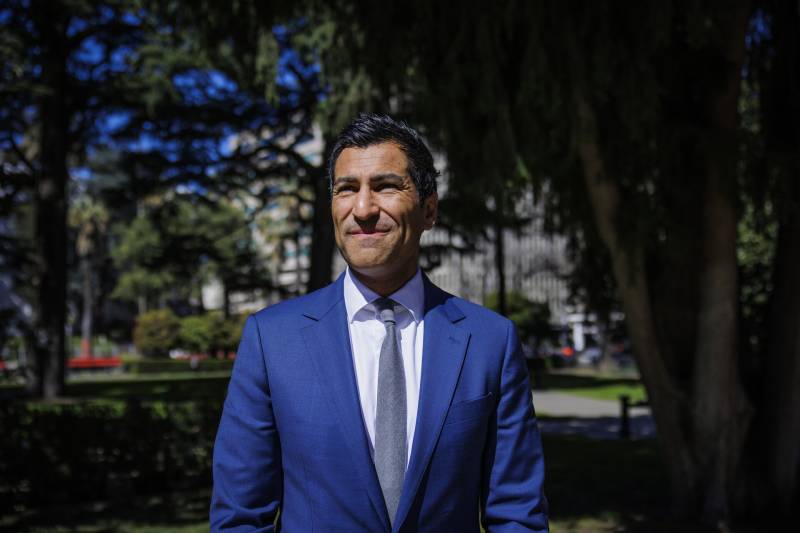“There’s no turning back the clock on the criminal justice reforms that have been enacted,” Rivas said on Tuesday. “For us, it’s understanding the root causes of this problem, which is complex, and for us, each one of these bills gets after those layers of complexity.”
Assembly Bill 2943, written by Rivas and Assemblymember Rick Chavez Zbur (D-Hollywood), would allow police officers to make an arrest for shoplifting without directly witnessing the alleged crime. It would also make it easier for law enforcement to aggregate multiple thefts into a felony grand theft charge.
“This bill says to organized crime rings, ‘We mean business, and we’re going to give law enforcement the tools they need to shut you down,’” Chavez Zbur said.
Rivas said the legislation was crafted with Gov. Gavin Newsom, who unveiled similar proposals earlier this year to curtail theft without touching Proposition 47, which would require approval from the voters.
But lawmakers may not have the last word on the fate of Proposition 7. Leaders of a campaign to roll back parts of the measure are expressing confidence that they will soon be able to submit the necessary signatures to put the issue on the ballot in November.
The measure, backed by large retailers and prosecutors, would create new felonies for repeated theft and toughen penalties for selling and possessing drugs. Supporters, which include the Democratic mayors of San Diego, San José and San Francisco, say the measure is needed to restore accountability and push drug users into treatment. Critics say its provisions will take the state back to over-criminalizing low-level crimes.
“While the proposed legislative bills are a step in the right direction, much more needs to be done to effectively hold individuals accountable and improve the safety of all Californians,” the campaign to repeal parts of Proposition 47 said in a statement.
Rivas said Tuesday that he would be “monitoring the progress of that initiative,” which proponents could remove from the ballot even after qualifying if they could negotiate a favorable deal with the legislature before July.
The bills unveiled Tuesday, however, further closed the door on the legislature proactively going to the voters to alter Proposition 47 this year.
That result was far from a foregone conclusion just three months ago when the legislature began its session. Hearings held by a select committee on retail theft that Rivas had created focused extensively on the effects of the ballot measure. Multiple moderate Democrats wrote bills to reverse pieces of the act. And Assemblymember Kevin McCarty (D-Sacramento), the chair of the Assembly’s Public Safety committee, said all potential solutions to retail theft were on the table.
However, after Newsom unveiled his proposals, Senate President Pro Tem Mike McGuire (D-North Coast) and Rivas soon followed suit and opposed changing Proposition 47.
Bills approved in the Public Safety committee on Tuesday included proposals to: expand the state’s existing retail theft law to cover merchandise stolen from cargo; allow a judge to place a restraining order on someone guilty of theft to prohibit them from returning to the retail establishment they robbed; and allow counties to enact a program allowing retailers to bring details of an alleged shoplifting directly to prosecutors without involving police.
Some advocates for criminal justice reforms voiced opposition to various provisions in the bill package — such as a bill to provide a sentence enhancement of up to five years when the property loss is more than $50,000 — but Tinisch Hollins, executive director of Californians for Safety and Justice, a group opposing the Proposition 47 rollback, applauded the overall direction of the Assembly bills.
“Rather than simply seeking to score quick and cheap political points, the package reflects a commitment to pursuing solutions that would reduce the incidents of theft in the first place while also underscoring the critical need for law enforcement to effectively solve crime when it occurs,” Hollins said in a statement.
